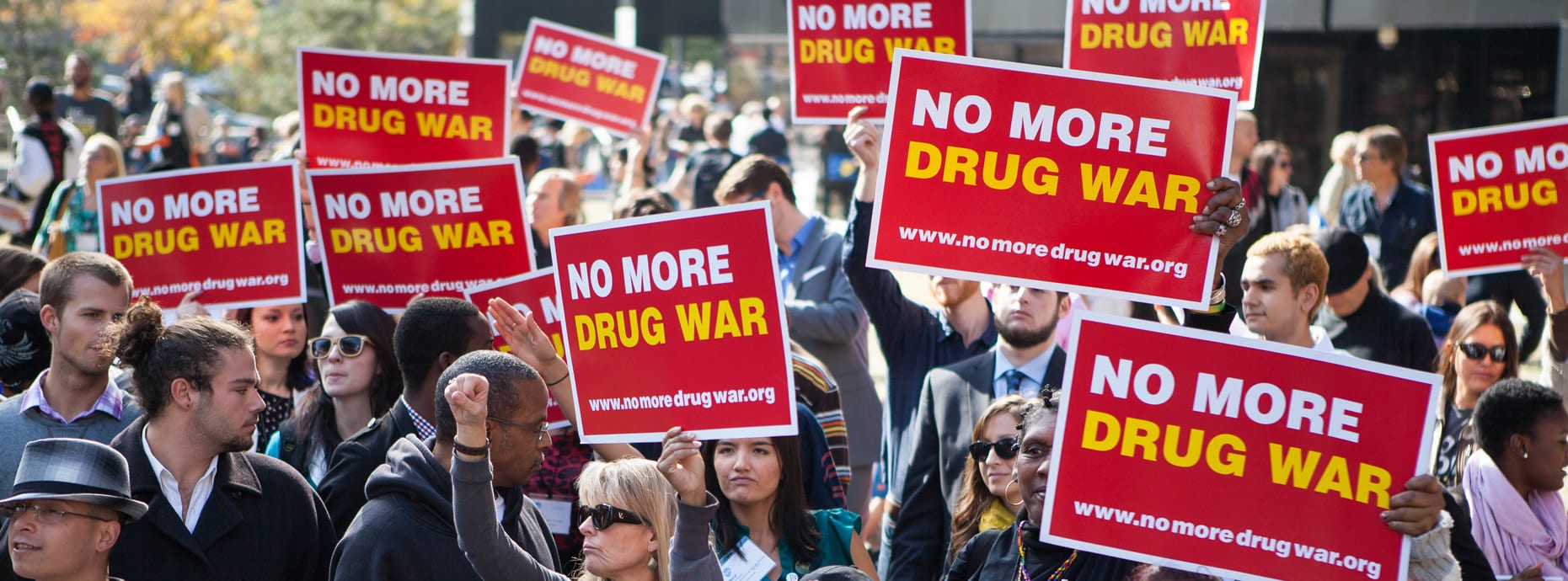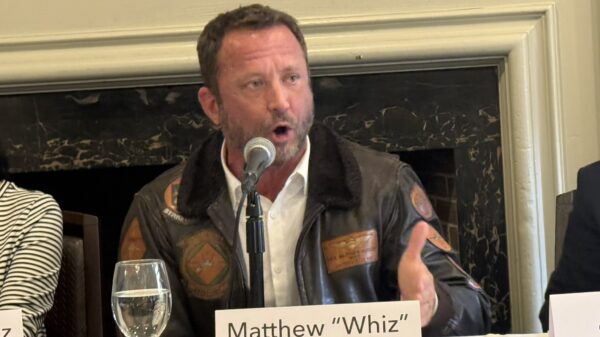Fifty years after the war on drugs began, most Americans consider it to be a failure, according to a recent poll.
On June 17, 1971, then-president Richard Nixon declared drugs “public enemy number one,” setting up the U.S. for decades of harsh drug enforcement and discriminatory over-policing.
Next week marks 50 years since President Nixon famously declared drugs “public enemy number one.”
This proclamation launched a new war on drugs that led to the incarceration of millions of disproportionately Black and Brown people while doing nothing to prevent drug overdoses.
— ACLU (@ACLU) June 9, 2021
The poll, backed by the American Civil Liberties Union (ACLU) and the Drug Policy Alliance (DPA), shows that across party lines the U.S. could be ready for sweeping changes when it comes to drug policy.
“A different reality — one where we treat people who use drugs with dignity and respect, and one where drugs are no longer an excuse for law enforcement to surveil, harass, assault and even kill Black, Latinx and Indigenous people — is 100 per cent possible, and these results clearly prove that,” DPA executive director Kassandra Frederique said in a statement.
Overall, 83 per cent of people surveyed said the war on drugs has failed. Only 12 per cent considered it a success. Regardless of party affiliations, the majority of people agreed with that statement. Democrats showed 83 per cent support, with Independents at 85 per cent and Republicans not far behind at 82 per cent.
Many (67 per cent) find the legacy of the war on drugs has been overcrowded prisons and drained resources, which diverted money away from addiction and treatment services. Fifty-seven per cent agree the war on drugs has worsened drug addiction in the U.S.
“Fifty years later, it is no secret the devastation the drug war has caused to our communities, and yet drug possession still remains the most arrested offence in the United States,” Frederique said.
“And so, it should come as no surprise that Americans are ready for a drastically different approach, one where drugs are no longer used as an excuse to hold us down. We deserve to live in a world where the health and safety of our communities is paramount, and that means eliminating all the ways in which we are criminalized and building an alternative response to get the support and help we need.”
Read more: US activists hope new attorney general will end drug prohibition
Read more: New York activists add last-minute pressure to pass progressive weed laws
Read more: US Senate drug caucus calls for more cannabis research
Arguments against drug policy reform don’t resonate
There’s some discrepancy among parties regarding how drug enforcement should change going forward.
As for getting rid of criminal penalties and reinvesting drug enforcement into addiction services, 66 per cent of voters agreed. Among Democrats, there is 85 per cent support for the idea, compared to 72 per cent from Independents and 40 per cent from Republicans.
A similar amount of support is expressed for repealing mandatory minimum sentences for drug crimes, with 64 per cent of Americans in support. Fewer voters (61 per cent) agreed with commuting or reducing the sentences of people who are incarcerated for drugs.
However, 82 per cent agreed it’s important for the president and Congress to reform drug laws in the U.S.
Democrats showed the most support at 92 per cent, followed by Independents at 79 per cent and Republicans at 76 per cent.
Read more: US civil and human rights coalition urges passing of MORE Act
Read more: California decriminalizes personal possession and use of psychedelics
Read more: FDA lifts ban on study of therapists taking MDMA
Udi Ofer, director of the ACLU’S justice division, calls on President Joe Biden to make good on his campaign promises and start dismantling the system of over-policing and mass incarceration.
“Today, drug possession continues to be the number one arrest in the United States, with more than 1.35 million arrests per year. Every 25 seconds, a person is arrested for possessing drugs for personal use, with Black people disproportionately targeted by this over-policing,” Ofer said in a statement.
“The Biden administration can make headway in ending this harmful and racist war by commuting the sentences of people incarcerated in federal prison for drugs. Biden does not need congressional approval to act, but doing so will help reduce the problem of mass incarceration and the over-policing of Black and Brown communities in the United States.”
Furthering the suggestion Americans are ready for a new approach, the poll finds common arguments against reforming drug policy change aren’t resonating.
Voters were asked to choose which statement they agreed with more: 58 per cent agreed that “The War on Drugs has failed, and we need a new approach that eliminates criminal penalties for possession, and treats drug use as a health issue, not a criminal problem.” And 37 per cent per cent agreed “Illegal drugs destroy communities, and we need to continue to prosecute all drug offenders, including both dealers and users.”
Bully Pulpit Interactive conducted the national survey polling 800 registered voters between May 17–20. Half were interviewed by phone, mostly by cellphone, and the rest were surveyed online.
Follow Kathryn Tindale on Twitter
kathryn@mugglehead.com














